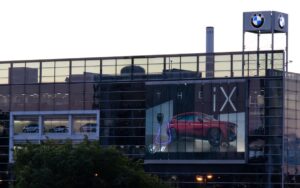As of Jan. 13, federal rebates for battery-electric and plug-in hybrid vehicles are no longer being offered

The federal government is pausing the iZEV rebate for the purchase of zero-emission vehicles as of March 31, 2025.
As of Jan. 13, federal rebates for battery-electric and plug-in hybrid vehicles are no longer being offered
Editor’s Note: This story has been updated as of Jan. 13, 2025 to reflect the government’s decision to pause the zero-emission vehicle incentive program.
Prospective passenger zero-emission vehicle buyers should be aware that the federal zero-emission vehicle incentive program (iZEV) is now officially paused.
The news comes just three days after the government put the public on notice about the program’s approaching end on March 31, 2025.
In an announcement On Jan. 10 the ZEV Council wrote to its members, “Once all funds are depleted, the program will pause and Canadians will not be able to receive incentives when purchasing/leasing new eligible vehicles through the iZEV Program. Prior to this, requests from dealerships and authorized sellers may be submitted as per usual until further updates are communicated.”
The fund had $71.8 million as of Jan. 10 — enough for roughly 14,360 more battery-electric vehicle rebates.
On Jan. 13, the ZEV Council sent out another message to its members: “Due to an unprecedented volume of requests received following the announcement on Friday, January 10, the iZEV Program funds have now been fully committed.”
A separate announcement on the Transport Canada website cautioned this may happen, stating, “Due to high uptake, the Incentives for Zero-Emission Vehicles (iZEV) Program will pause before March 31, 2025.”
iZEV impact
The iZEV program has been available since May 2019. Under it, roughly 546,000 emission vehicles — including battery-electric, plug-in hybrid and hydrogen vehicles — have received rebates.
A full battery-electric vehicle purchase was eligible for up to a $5,000 iZEV rebate, a plug-in hybrid up to $2,500 and leases of zero-emission vehicles up to a maximum of $5,000 depending on the term of the lease and the type of vehicle.
The ZEV Council confirms the iZEV funding only applies to passenger ZEVs and not to medium- and heavy-duty zero-emission vehicles. The latter has its own rebate funding stream (iMHZEV), which is set to continue to March 31, 2026.
Future of rebate programs
The ZEV Council gives no indication about whether or not it is likely the federal iZEV program will be topped up to continue.
However, given the upheaval within the federal government and the widely anticipated upcoming early election and Canada’s deficit as detailed in the interim financial report tabled in December 2024, the future of iZEV is anything but secure.
Prior to the ZEV Council’s announcement, Quebec announced it would not only reduce its rebate from $7,000 to $4,000, but it was also suspending its provincial rebate program starting in February 2025. The reason is cited as there being an unprecedented draw in 2024 that prematurely depleted the fund.
And, in June 2024, British Columbia narrowed the eligibility requirements for its $4,000 provincial CleanBC EV rebate program.
Individuals earning more than $100,000 are not eligible for the CleanBC rebate, while only those making less than $80,000 are eligible for the full rebate.
Newfoundland and Labrador is also planning to discontinue its $2,500 provincial rebate program on March 15. That end date was set when the program originally launched.






